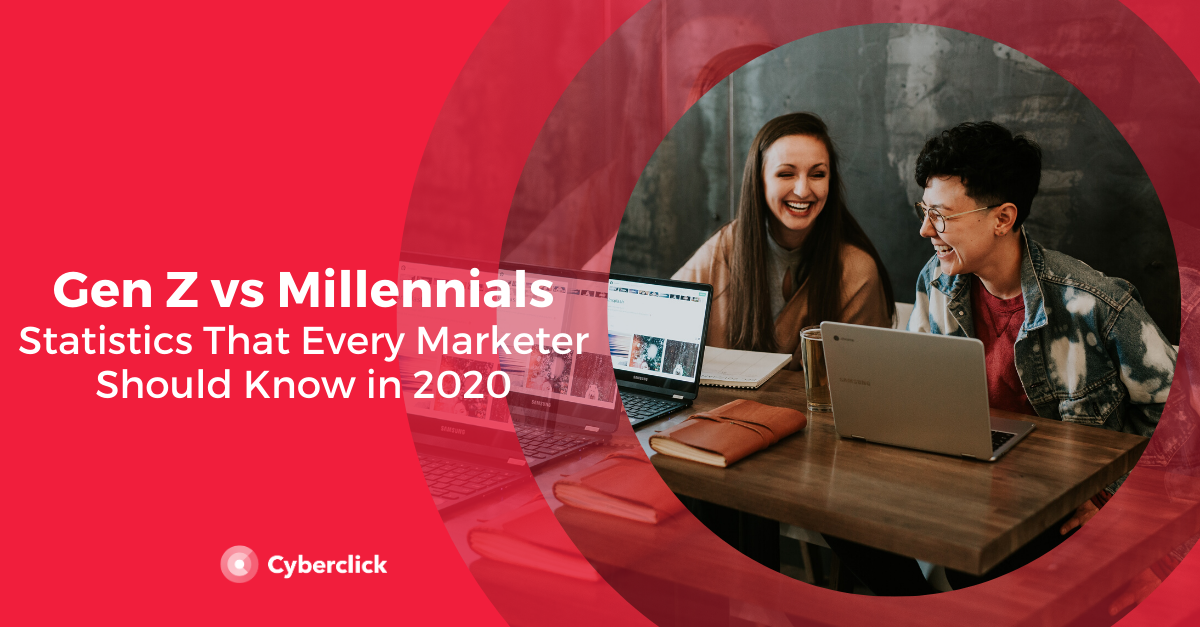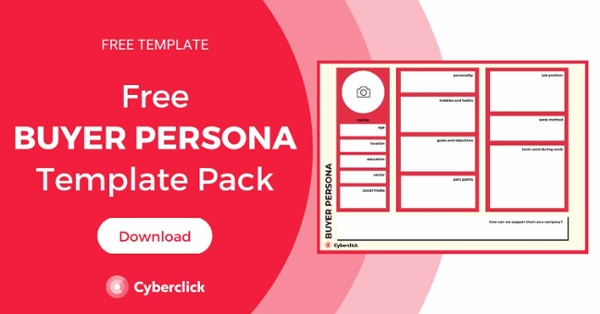By Dany Ortiz, on 16 January 2020
Generating engagement with younger generations can be a challenge for marketers. Gen Z and Millennials are no longer interested in conventional advertising and are shunning the brands that they perceive as inauthentic.
On the other hand, these two groups are very active on social media and are generally more open to innovation on the platforms, representing a great opportunity for advertisers. So the question is, how do you get these segments’ attention?
In order to understand how to best engage Gen Z and Millennials, I want to share some key findings from the study The Influencer Report: Engaging Gen Z and Millennials, by Morning Consult. Let’s dive in!
For the purpose of this blog, we’re defining Generation Z as those who were born between 1996 and 2015. This means that Gen Zers are between 5 to 24 years old in 2020. Millennials are those who were born between 1980-1995, making them 25-40 in 2020.
Gen Z and Millennial Influencers
72% of Gen Zers and Millennials follow an influencer. 23% claim to follow “many,” while 49% claim to just follow “some.” These are the results of the study, further segmented by age group.
- Between 13 and 16 years old: 30% follow many influencers, 46% follow some, and 24% follow no influencers
- Between 17 and 21 years old: 26% follow many influencers, 52% follow some, and 22% follow no influencers
- Between 22 and 26 years old: 22% follow many influencers, 56% follow some, and 22% follow no influencers
- Between 27 and 31 years old: 24% follow many influencers, 50% follow some, and 27% follow no influencers
- Between 32 and 38 years old: 15% follow many influencers, 43% follow some, and 43% follow no influencers
As for what types of influencer they follow, there is a big difference between genders. Men mostly follow influencers talking about gaming (62%), sports and exercise (41%) and food (35%), while women tend to follow beauty and skin care (59%), fashion (49%) and food (47%) influencers.
The study also analyzed the motivation to follow influencers. They found that there were 4 main reasons Gen Z and Millennials follow influencers:
- Inspiration: “Seeing someone’s successful life inspires me to do better things,” “They give me ideas on how to start a business or become an entrepreneur.”
- Voyeurism: “It’s fun to see them and it’s as close as I’m going to get to meeting someone famous,” “Honestly, I’m very nosey and I like to see what other people are doing.”
- Discover New Trends: “I like to see new beauty trends, what works and what doesn’t,” “I’m aware of the things I like so I like to follow them to see the latest trends.”
- See Fun and Interesting Content: “Normally they are very entertaining,” “I follow influencers on social media because they produce unique and entertaining content.”
Social Media Effects on Gen Z and Millennial Shopping Habits
Social media not only generates engagement, but it is also a crucial factor in buying decisions for Generation Z and Millennials.
- 88% Gen Zers and Millennials discover products that they are interested in buying through social media. 24% are "often", 46% "sometimes" and 18% "rarely".
- 56% have purchased a product after seeing it in a post of someone they follow. 7% say this happens often, and 49% say this happens sometimes.
- For 50% of users, social media is the main place they discover new products to buy. 20% say the main source of discovery is from social ads, 12% from posts from friends and family, and 18% from influencers’ posts. Additionally, 15% discover new products from TV, 15% by word of mouth, 3% through blogs, and 1% from the news.
The most popular social media networks for these two generations are currently Instagram and YouTube. Let’s breakdown the data by gender and generation:
- Generation Z Men: YouTube (53%), Instagram (34%), and Snapchat (5%)
- Generation Z Women: Instagram (43%), YouTube (42%), and Facebook (4%)
- Millennial Men: YouTube (41%), Instagram (25%), and Facebook (19%)
- Millennial Women: Instagram (40%), YouTube (27%), and Facebook (26%)
When it comes to who uses each social media, the statistics are clearly separated by age:
- YouTube is the platform used by all age groups, with between 90-100% of users.
- Facebook is the most popular with 22 through 38 year-olds. For them, it is the second most used social media platform after YouTube. In contrast, Facebook has a lesser impact for the younger generations.
- Instagram use is around 62% for 32 to 28 year-olds, and 83% for 17-21 year-olds.
- Half of the users between 13 to 26 use Snapchat.
- Twitter is between 40-52% of popularity for all of the ages.
- Twitch and Tik Tok are most relevant for users aged between 13 to 21 years old.
Both Gen Z and Millennials tend to trust family and friends recommendations and product reviews more than celebrity endorsements or brand representatives.
Most Popular Gen Z and Millennial Influencers
As part of the study, respondents were asked to name their favorite influencer. The results showed that there is wide range of influencers, with very diverse niches.
Most influencers were mentioned only once or twice, and only a handful of them were frequently mentioned. The bottom line is that influencers appeal to their unique niche audiences and it is essential to do in-depth research to find the most suitable for a particular brand. There is no such thing as a "catch all" influencer.
These were the influencers that were mentioned the most by both generations:
- PewDiePie: Comedian and YouTuber. His YouTube channel is the most followed channel on the platform, with over 101 million subscribers and over 12 billion views.
- Jeffree Star: A YouTuber who is also a successful entrepreneur, fashion designer, make up artist, model, and pop singer.
- Shane Dawson: A YouTuber, comedian, actor, and writer, who is known for his videos featuring imitation and parodies.
- Markiplier: A comedian and YouTuber
- Kylie Jenner: Celebrity, entrepreneur, designer, and model who at one point held the record for the most followed account on Instagram.
It’s interesting to note that 4 out of these 5 influencers are YouTubers, and 3 out of 5 dedicate their channel to humor.
In fact, for Generation Z, YouTubers are as well known and loved as traditional celebrities. For example, 86% of Gen Z women consider Shane Dawson to be more popular than Serena Williams (81%) and Jennifer Anniston (80%). And 95% of Gen Z men are more aware of PewDiePie than Steph Curry (86%) or Elon Musk (84%).
How Likely Are Gen Z and Millennials to Collaborate with Brands?
Finally, one of the most interesting conclusions of the study is that the vast majority of people in both of these generations would be willing to publish sponsored content in exchange for money (specifically 86%). 66% said they would be willing to promote a product on one of their personal social networks if they liked it, while 20% would even if they weren't excited by the product.
Also, 54% would not have a problem with becoming an influencer if they had the opportunity, 27% know an influencer in person, and 12% consider themselves influencers.
These are the two generations motivations for becoming influencers:
- Millennials: Flexible working hours (60%), the pay (58%), to have a fun job (48%), and to make a difference in the world (48%).
- Generation Z: To make a difference in the world (58%), flexible working hours (55%), and the opportunity to share their ideas to a large audience (53%)
We hope these statistics help you with your next digital marketing strategy for Gen Z or Millennials. While these two audiences can be a bit tricky to nail down in the beginning, having a little extra intel on them will set you on the right track for the long run.




